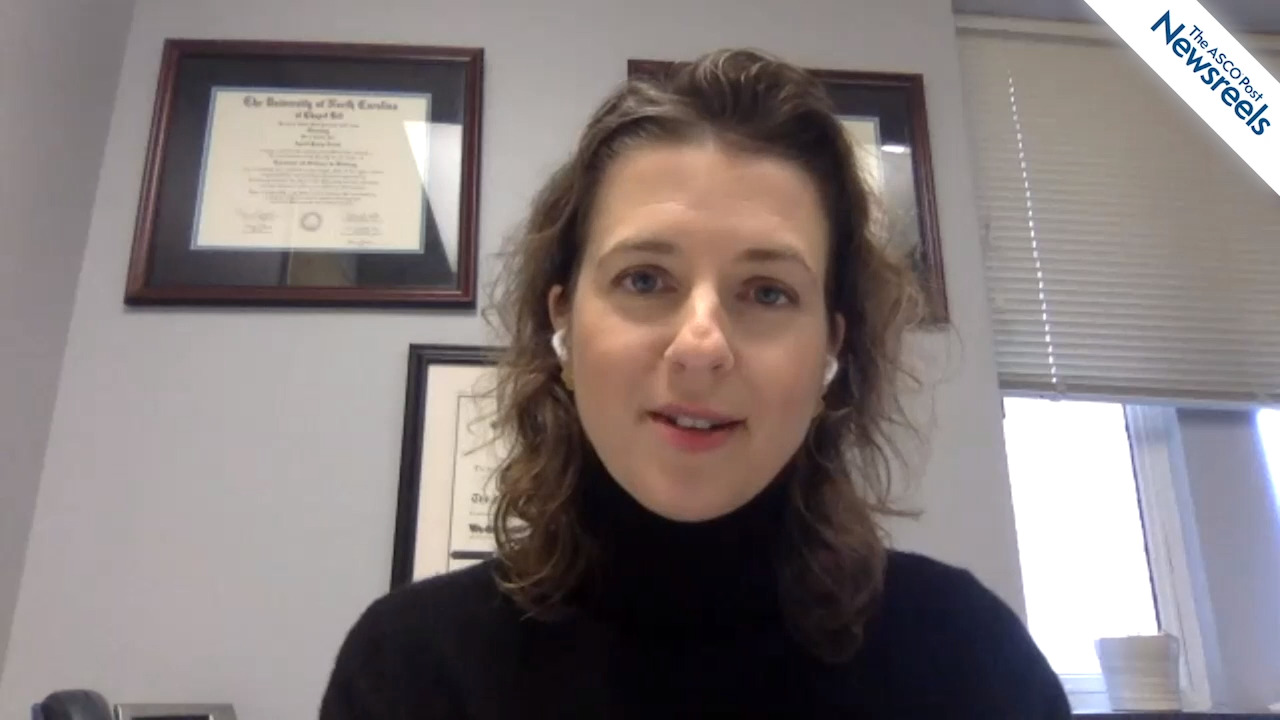David G. Pfister, MD, on Supportive Care in Head and Neck Cancers: Multidisciplinary Management
NCCN 2021 Virtual Annual Conference
David G. Pfister, MD, of Memorial Sloan Kettering Cancer Center, discusses the many considerations when caring for patients with head and neck cancers, such as dental and nutritional issues; side effects from radiation, including necrosis of the bone; oral health; problems with speech; and the concerns of younger patients who may have to cope with the sequelae of treatment such as altered function or disfigurement for years to come.
The ASCO Post Staff
Arlene O. Siefker-Radtke, MD, of The University of Texas MD Anderson Cancer Center, discusses the changing therapeutic landscape in which atezolizumab, avelumab, and pembrolizumab have either been approved or are under review for treating urothelial bladder cancer in the metastatic, superficial, and adjuvant settings.
The ASCO Post Staff
Lori J. Wirth, MD, of Massachusetts General Hospital Cancer Center, discusses the common molecular alterations across thyroid cancer subtypes; targeted treatments for BRAF V600E–mutant, NTRK–fusion positive, and RET–altered disease; and optimal therapies for patients with multiple types of thyroid cancer.
The ASCO Post Staff
Eric Jonasch, MD, of The University of Texas MD Anderson Cancer Center, discusses the several hereditary renal cell cancer syndromes, the importance of surveillance for both renal and nonrenal manifestations, and the treatment options available.
The ASCO Post Staff
Sandy Srinivas, MD, of Stanford Cancer Institute, discusses the increasing number of ways to deliver life-prolonging therapy to patients with advanced prostate cancer, including more accurate imaging techniques; PET tracers to help better detect, diagnose, and treat disease; PARP inhibitors for BRCA and other mutations; and new sequencing of drugs.
The ASCO Post Staff
April K. Salama, MD, of Duke Cancer Institute, discusses the shift in recent years, as more effective therapies have become available, toward integrating systemic upfront treatment of patients with brain metastases from cutaneous melanoma; pivotal studies that have provided key data; and the need for a multidisciplinary approach incorporating medical, surgical, and radiation oncology.





